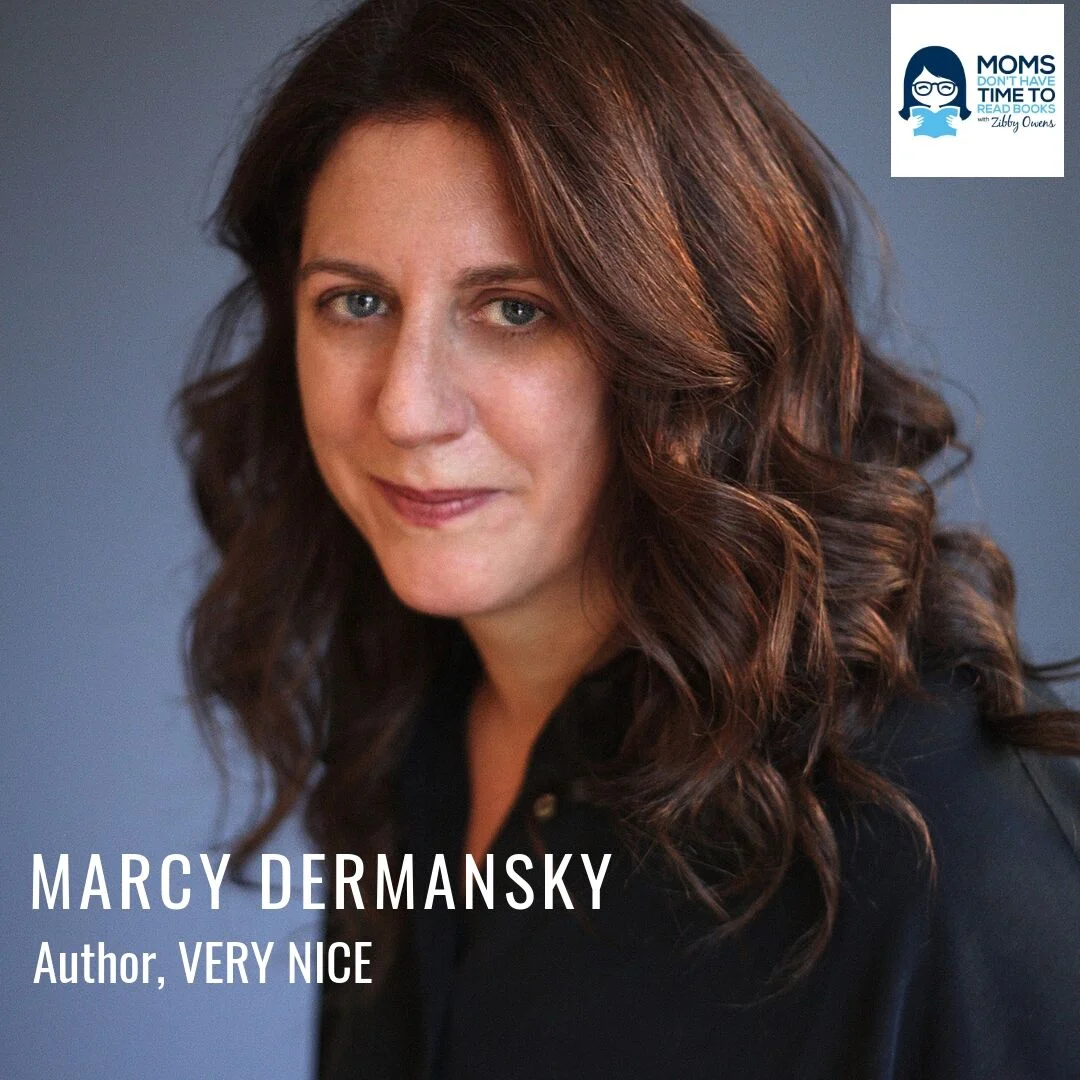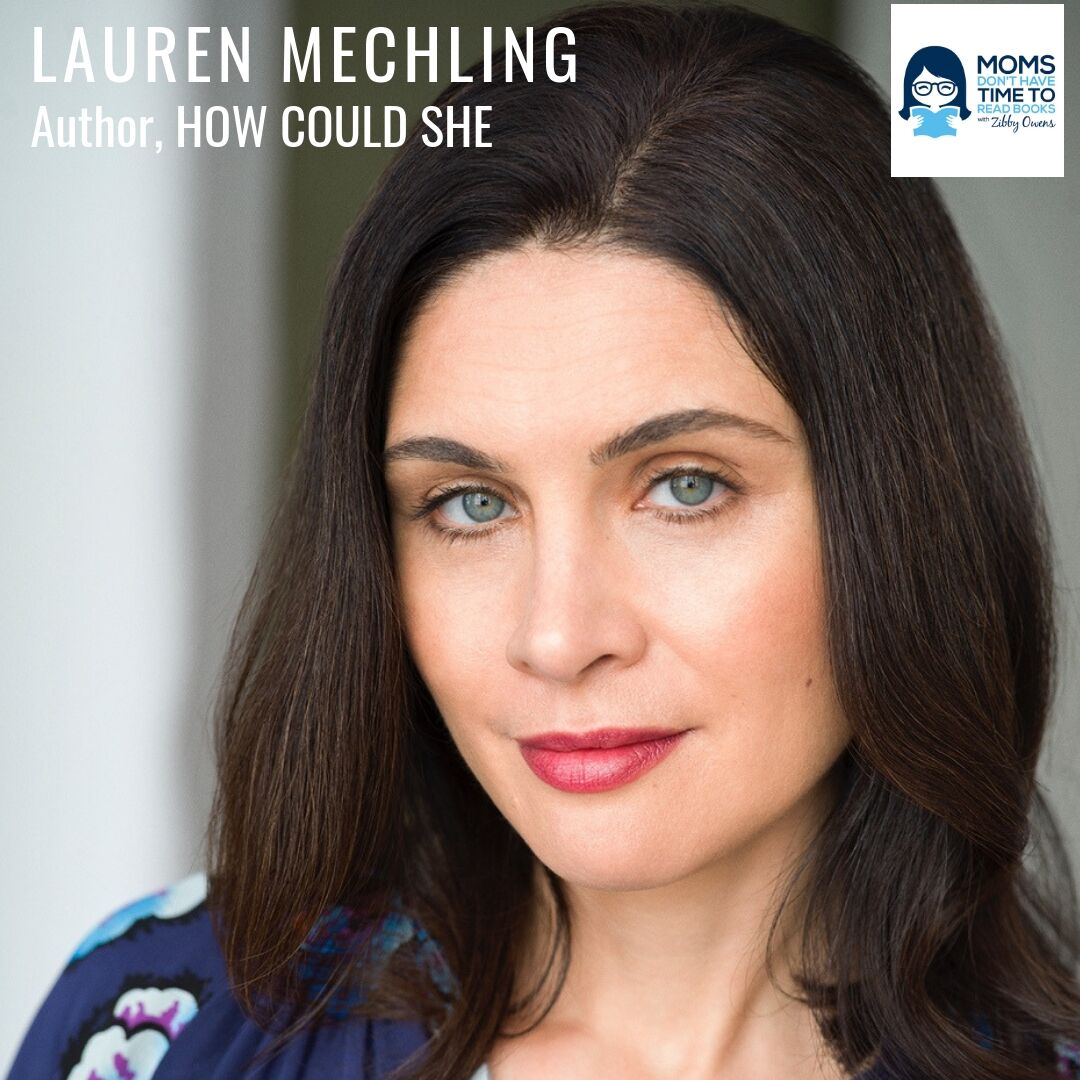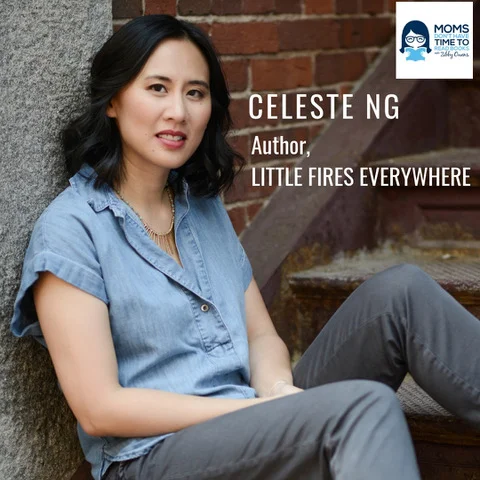Liz: Don't Wait Up is a collection of humor essays. It’s about the fact that I am terrified of being a mother because I inherited the maternal instincts of a hot dog from my own mother, from my biological mother. I am always shocked when I show up for them and when I'm not her, still to this day. I stay at work a lot and try not to come home. I do eventually. I had all these stories I wanted to tell from my childhood. I wrote all these essays. I want to write something that's my own and not TV and that I have control over. I took this class. I started writing. All of the essays started having the same theme no matter what they were about. They were all about being a mother and not really having a mother. That was the arc that I found.
Joanne Ramos, THE FARM
Joanne: If you imagine the most luxurious spa you've ever seen, that's the Farm. It’s got everything. It’s got gourmet meals and private massages, private yoga instruction. It’s all for free for the women who are staying there. In fact, they can get paid big money for spending their nine months there. The only catch is that they can't leave the grounds. Every move is monitored. They're totally cut off from their daily lives because off all these women are surrogates. By contract, they’ve agreed to prioritize the life that's growing inside of them over everything in their own lives. They carry the babies of the richest people in the world.
Laurie Gelman, YOU'VE BEEN VOLUNTEERED: A CLASS MOM NOVEL
Laurie: Class Mom is about the mother who volunteers in the classroom to help out everybody. My character, Jen Dixon, was a mom very early in her life. She had a crazy ride through Europe following the band INXS. She had two kids by two different band members. Then she finally came back to the United States. She raised her kids. Then she met the man of her dreams and she had another kid. She has girls in college and one starting kindergarten, which is a unique and interesting place to be. She gets roped into being class mom.
Marcy Dermansky, VERY NICE
Marcy: Very Nice is literary soap opera. I wanted to write about a student-teacher affair. I've always been so interested in it. It was material that other people wrote about and I was jealous about. I was like, maybe I could write it anyway even though I haven't had this experience. That's what one of the pleasures of fiction is. You can make things up.
Lauren Mechling, HOW COULD SHE
Lauren: How Could She is about the trouble and heartbreak of female friendship. It’s a friendship triangle about three women who have a past together. They met and came up together in their twenties. The story takes place over the course of one year when the women are a little older than thirty-five. They all find themselves in very different stations in life. They are still enmeshed in each other's lives, but they have a difficult time digesting each other's successes and failures.
Jennifer Blecher, OUT OF PLACE
Jennifer: Out of Place is the story of a twelve-year-old girl named Cove who lives on Martha’s Vineyard, which is an island off of Cape Code, with her mom. She's never left the island once in her entire life, which was fine with her until the day that her best friend Nina comes and tells Cove that Nina’s going to be moving to New York City with Nina’s two fathers. In that moment, Cove’s entire life feels like it’s falling apart. She has no idea how to make it better. It’s a story about friendship and mistakes and big acts of courage.
Meg Wolitzer, THE FEMALE PERSUASION
Jennifer Weiner, MRS. EVERYTHING
Jennifer: Mrs. Everything is the story of two Jewish American sisters from the 1940s all the way through the present and slightly beyond into a lightly fictionalized future where there's a woman president. It’s the story of these two women. There's the rebel and the good girl, who sort of switch places halfway through the book. Through their eyes and through their experiences, it’s the story of women in America. That's what I was setting out to do. I wanted to tell a sister story and a woman story and an American story, a story about America. That's what I hope I did. I hope it’s a great, big, fun juicy beach read too.
Evangeline Lilly, THE SQUICKERWONKERS
Evangeline Lilly: I was fourteen years old when I came up with The Squickerwonkers original poem. I spent my time reading and journaling and writing. I was really into Dr. Seuss. I thought it was cool that he had this irreverent use of language. He would just makeup whatever word he wanted to. was like, I want to make up my own words. I started writing a list of imaginary words. Most of them were ridiculous and not very good. One of them on the list felt good on my tongue and really stuck. It was the word squickerwonker. At the time, I was like, what's a squickerwonker? What is that? What would that mean? What would that translate to?
Lisa Barr, THE UNBREAKABLES
Lisa: The Unbreakables is about a woman from Chicago whose husband and best friends end up betraying her. She loses everything in one fell swoop. She decides to go to Paris first to meet her daughter who’s also dealing with her own heartbreak. Once she gets out there, she makes a split decision to go to the South of France to really heal from her wounds. There she reclaims her sensuality and also her abilities as a sculptor which she pretty much let go of. The book came about, it was July 2015. I don't know if you remember this, the Ashley Madison hack.
Nicola Harrison, MONTAUK
Nicola: That was the beginning of it, this idea of the locals and this loyalty. When my son was young on the weekends, you know how sometimes they don't nap and you put them in the car and you just drive around? I would drive around Montauk for so long up by the lighthouse, and down to the fishing village, and down by the beach, and up by the Montauk Manor. I started piecing something together in my mind.
Wendy Walker, THE NIGHT BEFORE
Wendy: The other dynamic at play is that there's almost this inner child inside of you that still wants to fix it, that wants to find a way to make that parent stop being abusive. Because you were never able to do it as a child, when you find someone as a grown-up who gives you the chance to fix them and finally be powerful enough to solve that problem, it’s almost euphoric.
Jennifer Robson, THE GOWN: A NOVEL OF THE ROYAL WEDDING
Claire Gibson, BEYOND THE POINT
Claire: We’re all constantly fighting the chaos that just comes into life naturally. My house, every day, I clean it. At the end of the day, it is a mess. You can let it be a mess or you just constantly work at keeping the chaos at bay. That's part of our human experience is learning how to make the most of the space that we have, whether that's creatively as a novelist trying to make things work, or in the military, constantly fighting against enemies that would like to make our country less safe, or in the case of that character, shaving every day just to keep your performance and your face looking professional.
Kate Hope Day, IF, THEN
Kate: I have an idea for my third book in my mind. The way it’s worked for me is characters take up residence in my mind for about six months to a year before I ever write a word. If they stick around that long, then I know that has to be the book. My retelling of Jane Eyre was like that. I didn't let myself write anything because I was going to finish If, Then.
Jamie Brenner, DRAWING HOME
Celeste Ng, LITTLE FIRES EVERYWHERE
Celeste Ng, LITTLE FIRES EVERYWHERE
Celeste: It’s interesting because I always think what do people who aren’t writers, how do they process all the things that happens in their lives? When they watch other people or they watch their family members or friends, they're like, you're doing something really different from what I’m doing. How do they make sense of that? For me, it’s on the page. I always wonder how people who aren’t writers, and I guess aren’t therapists, deal with that.
Nell Freudenberger, LOST AND WANTED
Nell: When someone dies and you realize that there was this time that you had that you could've -- at this point, we’ve all lost a friend in a more permanent way. You realize, “God. There were all those nights. What was I doing when I could've been out with him or her?” It seems incredible at this age when suddenly someone's life is cut short.
Lynda Cohen Loigman, THE WARTIME SISTERS
Lynda: During World War II, of course as we all know with the Rosie the Riveter stuff, so many women worked in the defense plants. I started the researching the armory. I thought I knew what was going to happen. I thought I was going to have this character. I just wanted to know what job she would have. I was going to do a little bit of research. That was going to be it.



















